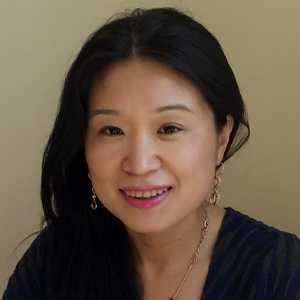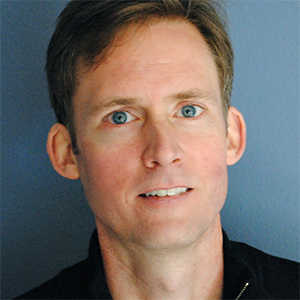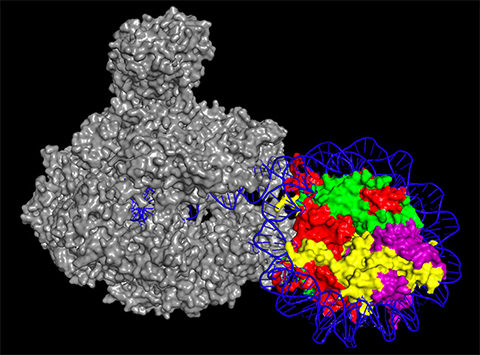More than just omics
Researchers will gather near the nation’s capital in September to network, present their work and learn from one another at the American Society for Biochemistry and Molecular Biology’s meeting on transcriptional regulation by chromatin and RNA polymerase.
Co-organizers W. Lee Kraus, Y. Jessie Zhang and Dylan Taatjes moved this formerly Utah-based meeting to Alexandria, Virginia, to make it more accessible for researchers across the U.S. and beyond. Both Taatjes and Zhang are experienced co-organizers. They all want to give equal time in the spotlight to a range of techniques used to study transcription such as live cell imaging, structural biology, biochemical and biophysical experiments and more, not just omics. The organizers said they keep coming back to this meeting because, with only about 200 attendees, the meeting feels "right-sized" to allow a broad spectrum of topics while facilitating opportunities for networking and collaboration.



Kraus is a professor and director of the Cecil H. and Ida Green Center for Reproductive Biology Sciences at the University of Texas Southwestern Medical Center. His research focuses on signal-regulated transcription, chromatin and gene regulation, nuclear receptors and poly (ADP-ribose) polymerases, or PARPs, as well as NAD+ metabolism and signaling.
Kraus founded Ribon Therapeutics, Inc. and ARase Therapeutics, Inc., two oncology pharmaceutical companies that work on PARP and ADP-ribosylation, and he serves on the scientific advisory boards of other biotech startups.
Zhang is a professor of biochemistry at the University of Texas at Austin. Her lab studies the molecular mechanisms of the enzymes that govern the post-translational modification states of eukaryotic RNA polymerase II and their implication in transcription. The lab uses a combination of structural biology and artificial intelligence approaches to guide protein engineering and small molecule inhibitor design.
Zhang is a member of the ASBMB Meetings Committee and has served as a theme organizer for Discover BMB multiple times.
Taatjes is a professor of biochemistry at the University of Colorado Boulder. His lab studies the molecular mechanisms that control human gene expression and how transcription and signaling pathways are altered during development and disease. The lab also uses biochemical, biophysical, molecular and cell biology approaches as well as metabolomics, proteomics and transcriptomics to focus on transcription factors and the preinitiation complex.
ASBMB Today talked to these organizers about hot topics in transcription, what makes the meeting unique and how trainees can get involved.
The interview has been edited for length, clarity and style.
What is your history with the transcription meeting?
Kraus: In the past, I was invited to speak at this meeting. I remember attending and thinking, ‘Wow, what a different type of meeting.’ The small format makes it more intimate with lots of interactions between faculty and trainees. People seemed very open with the data they were sharing. I’ve started bringing my trainees to the meeting, and they've enjoyed it as well.
I've organized quite a few meetings over the years in different fields. Honestly, I was feeling all organizer’d out. But, when I was approached to participate in the organization of this meeting, I just couldn't say no.
Taatjes: This meeting has always been prominent because the excellent keynote speakers get your attention. That was one of my early impressions. It just feels a little bit different. It's a good size; there are a lot of opportunities to interact with other attendees. It has a good mix of basic biochemistry, structural biology and in vitro work as well as the multi-omics approaches, which are very powerful. Some meetings tend to be all omics all the time, but I think this one has a nice balance.
Zhang: This meeting has more than 20 years of history. I started participating about 10 years ago, when I was junior faculty. Back then, I needed to identify a meeting that I could always go to, and my colleague recommended this one. I started coming and have been to every meeting since. It was attractive to me as a junior faculty member because I noticed how much attention the meeting gives young scientists.
The keynote and invited speakers are famous people, but they have a strong affinity for the young people at this meeting. You’ll get to talk to a National Academy member; they’ll join you in scientific discussion and sit next to you during meals. The meeting is the perfect size. Almost every attendee has a chance to talk to everyone else. If you’re a young person, your poster will be seen. Actually, it will be so busy that you might not have time to take a water break.
This meeting embodies exactly what science is about. It’s about communication and the passion that everyone shares. It's inspiring and energetic; that's why I keep coming back.
This year, we hope people will present their most updated and unpublished work. We’re at the frontier of transcription.
What can you tell me about the 2024 meeting thus far?
Taatjes: The two keynote speakers represent the breadth of topics at the meeting. We have a world leader in structural biology, Karolin Luger at the University of Colorado Boulder. And we have a world leader in developmental biology, who is also a pioneer in live cell imaging, Mike Levine at Princeton. They bookend the range of expertise at the meeting. We have a good representation of a broad array of scientific topics. For junior investigators, we always keep speaker spots open for submitted abstracts, and we prioritize representation of people at different stages of their scientific careers.
Kraus: The organizers need to look to the future and think about where the field is heading. We've tried to set the themes in a forward-looking way. If somebody is new to the field, they will really have a great experience at this meeting and be able to understand where the field has been but also where it's going.
What are the roles of the sponsors at this meeting?
Zhang: This year we’ve really focused on fundraising. Sponsors chose specifically what they wanted their donation to support. For example, a student travel or poster award. We have quite a few student awards this year. I think young students who just entered the transcription field should take notice of this meeting and these opportunities.
Kraus: Relevant companies will have a presence at the meeting, which can provide attendees with new technical information.
Q: How will this meeting differ from previous years?

Zhang: For the past 20 years, this meeting has been held in Utah. It was a wonderful location, but it's not accessible for everyone. We’ve now moved to an extremely convenient location near Washington, D.C. It’s a different location, but we’ll have the same high caliber of speakers, the welcoming ambiance and collaboration. We hope the site will be easier to get to, and people will keep coming year after year.
We specifically chose a place with a lot of food options because food is important to me. At past meetings, we had all organized meals, but we’ve given attendees this year some free time so they can explore the area and grab dinner with friends and collaborators.
Taatjes: Public transportation is excellent, so getting to the meeting will be straightforward. In the Washington, D.C. area, there's so much to see. There are great free museums and beautiful architecture. It's a great place to visit, even beyond the meeting.
What are some hot topics in transcriptional regulation right now?
Kraus: One area where the field has recently advanced is connecting molecular mechanisms to important biological outcomes. Three decades ago, biology, in a sense, was an afterthought. It was a very biochemistry-driven field. Now, with the techniques available, it's possible to study molecular mechanisms in living cells in either physiological or disease states. I think this paradigm will be reflected in the meeting.
Regarding omics, it is very advanced. But there's still more for that area to give. That's one thing we're looking for if we're going to be representing omics methodologies. What's truly new and transformative that can shed new light in the omics field?
Taatjes: I’m excited that the role of molecular condensates in transcription will be well represented at the meeting as well as the latest imaging techniques. Imaging transcription in real time has been transformative in many ways.
Zhang: Recent developments have shown how effective cryogenic electron microscopy can be for the field. We’ve come to the point that, instead of just a photograph, we can see the entire movie.
How’s it been working together?
Taatjes: We all get along really well, and we like each other. I think that feeling flows through to the meeting with it being collegial and collaborative. The tone of the meeting is constructive. Science is like a small town, and it's good if you all get along.
Zhang: We always have three organizers, and we meet every other month to talk about our progress. These two (Taatjes and Kraus) are like two young boys, and I'm the older sister who makes sure we get the work done. We’ve known each other for years, and we all know each other’s work so well. If you come to the meeting, you will get to know all your colleagues’ work too.
Organizing this meeting is enjoyable and doesn’t feel like work. It’s more like hanging out with your friends and talking about what’s new and the papers you’ve read. It's wonderful to have this kind of relationship, and we want to carry this ambiance to the meeting so that everybody feels welcome.
Kraus: I completely agree.
Details
When: Sept. 26–30
Where: Westin Alexandria Old Town, Alexandria, Va.
Deadlines: The early registration and abstract submission deadline for this meeting has been extended to July 10. The regular registration deadline is Aug. 26.
More information
Enjoy reading ASBMB Today?
Become a member to receive the print edition four times a year and the digital edition monthly.
Learn moreFeatured jobs
from the ASBMB career center
Get the latest from ASBMB Today
Enter your email address, and we’ll send you a weekly email with recent articles, interviews and more.
Latest in Careers
Careers highlights or most popular articles

Cooking up science engagement, a fermentation experiment
By blending hands-on cooking with scientific experimentation, a study from a team at North Carolina State University demonstrates how culinary creation can spark scientific discovery and deepen public engagement with researchers.

Upcoming opportunities
ASBMB's PROLAB award helps graduate students and postdoctoral fellows spend up to six months in U.S. or Canadian labs.

From humble beginnings to unlocking lysosomal secrets
Monther Abu–Remaileh will receive the ASBMB’s 2026 Walter A. Shaw Young Investigator Award in Lipid Research at the ASBMB Annual Meeting, March 7-10 in Washington, D.C.

Chemistry meets biology to thwart parasites
Margaret Phillips will receive the Alice and C. C. Wang Award in Molecular Parasitology at the ASBMB Annual Meeting, March 7-10 in Washington, D.C.

Decoding how bacteria flip host’s molecular switches
Kim Orth will receive the Earl and Thressa Stadtman Distinguished Scientists Award at the ASBMB Annual Meeting, March 7–10, just outside of Washington, D.C.

Defining JNKs: Targets for drug discovery
Roger Davis will receive the Bert and Natalie Vallee Award in Biomedical Science at the ASBMB Annual Meeting, March 7–10, just outside of Washington, D.C.

